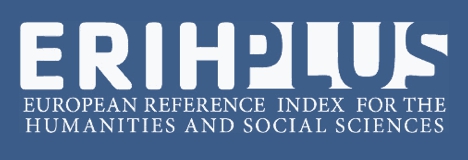Interdisciplinary geography and territorial development
Abstract
This article reports an experience of teaching practice in Geography, in basic education, in which the challenge is to deal with territorial development in the classroom. This requires the teacher to take an interdisciplinary course that will facilitate his teaching. The objective is to discuss a possible way to approach territorial development through the limitations that are presented to the Geography teacher. The focus of the methodology was on the use of generating themes as a way to deepen the dialogue, problematizing the reality and context of the students. The theme technical was taken as a fundamental element to think territorial development oriented to autonomy and freedom. As a result, the use of the generating theme was useful to problematize the territorial development in relation to the (sub)development of the countries, from a geographic perspective. With this we reached other themes to relate to the set of geographical themes, such as territory, technology, social technology, development and autonomy.
References
______. Ciências humanas e suas tecnologias. Brasília: Ministério da Educação; Secretaria de Educação Básica, 2006.
CALLAI, H. C. A formação do profissional da Geografia. 2. ed. Ijuí: Ed. Unijuí, 2003.
COSTA, A. B. (Org.). Tecnologia social e políticas públicas. São Paulo: Instituto Pólis; Brasília: Fundação Banco do Brasil, 2013.
DIAMOND, J. Armas, germes e aço. 13. ed. Rio de Janeiro: Record, 2013.
FAZENDA, I. Interdisciplinaridade: um projeto em parceria. 4. ed. São Paulo: Loyola, 1999.
______. Desafios e perspectivas do trabalho interdisciplinar no Ensino Fundamental... Interdisciplinaridade, São Paulo, v. 1, n. 1, p. 10-23, out. 2011. Disponível em:
FREIRE, P. Pedagogia do Oprimido. 40. ed. Rio de Janeiro: Paz e Terra, 2005. p. 89-139.
______. Educação como prática da liberdade. Rio de Janeiro: Paz e Terra, 2009.
______. Pedagogia do Oprimido. 50. ed. Rio de Janeiro: Paz e Terra, 2011.
______. O que é “método dialógico” de ensino? O que é uma “pedagogia situada” e empowerment? In: FREIRE, P.; SHOR, I. Medo e ousadia: o cotidiano do professor. 10. ed. Rio de Janeiro: Paz e Terra, 2003. p.121-146.
HAESBAERT, R. Por uma constelação geográfica de conceitos. In: Viver no Limite: território e multi/transterritorialidade em tempos de insegurança e contenção. Rio de Janeiro: Bertrand Brasil, 2014. p. 19-51.
KROPOTKIN, P. O que a Geografia deveria ser. In: RECLUS, E.; KROPOTKIN, P. Escritos sobre Educação e Geografia [Edição Virtual]. São Paulo: Biblioteca Terra Livre, 2014. p. 33-72.
MORIN, E. A cabeça bem-feita: repensar a reforma, reformar o pensamento. 11. ed. Rio de Janeiro: Bertrand Brasil, 2005.
SACHS, I. Repensando o crescimento econômico e o progresso social: o âmbito da política. In: ARBIX, G.; ZILBOVICIUS, M.; ABRAMOVAY, R. (Orgs.). Razões e ficções do desenvolvimento. São Paulo: Editora UNESP/ Edusp, 2001. p. 155-163.
SANTOS, M. O papel ativo da geografia: um manifesto. Revista Território, Rio de Janeiro, ano V, n. 9, p. 103, 2000.
______. Território e Dinheiros. In: Território Territórios. Niterói, RJ: Programa de Pós Graduação em Geografia – PPGEO-UFF/AGB, 2002.
_______. Por uma outra globalização: do pensamento único à consciência universal. 16. ed. Rio de Janeiro: Record, 2008.
______. Entrevista explosiva com Milton Santos. Caros Amigos, n. 17, 4 mar. 2016. (Seção Grandes Entrevistas). Disponível em:
VALENTE, L. F. Paulo Freire: desenvolvimento como prática da liberdade. Revista Alceu – PUC-RJ, v. 9, n.18, p. 186-197. jan./jun. 2009.
Keywords
Policy Proposal for Free Access Journals
Authors who publish in this journal agree to the following terms:
a. Authors retain the copyright and grant the journal the right of first publication, with the work simultaneously licensed under the Creative Commons Attribution License which allows the sharing of the work with acknowledgment of the authorship of the work and initial publication in this journal.
b. Authors are authorized to take additional contracts separately, for non-exclusive distribution of the version of the work published in this journal (eg publish in institutional repository or as a book chapter), with acknowledgment of authorship and initial publication in this journal.
c. Authors are allowed and encouraged to publish and distribute their work online (eg in institutional repositories or on their personal page) at any point before or during the editorial process, as this can generate productive changes, as well as increase the impact and The citation of published work (See The Effect of Free Access).





















